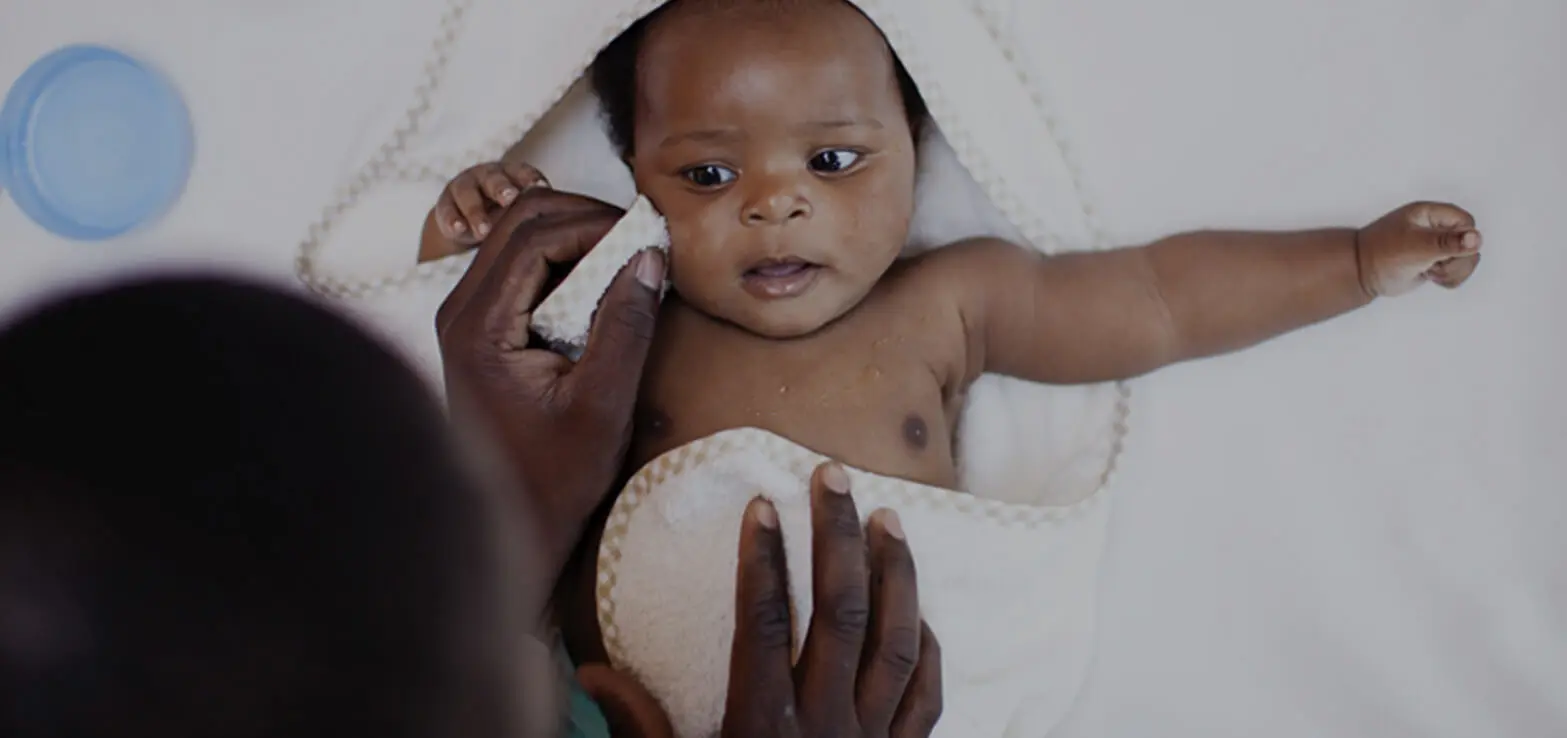A baby’s needs are unique and different than our own, and her senses, like sight and touch, play a much bigger role than you might expect.
JOHNSON’S®: Baby Science Breakthroughs
We know that the best way to care for babies is to first understand what makes them so special. JOHNSON’S® has been pioneering baby science and setting global standards in baby skin care for more than 120 years.
On this page (and throughout our site), we’re excited to share the science of babies that drives all that we do.
Sight
Sight is among the last of your baby’s senses to fully develop, and babies’ eyes continue to develop even after birth. Eye contact is part of the foundation for communication and social development.
Newborns can only focus at a short distance, about 8 to 12 inches, which is the distance between your face and your baby's when you're cradling or feeding.
During their first year, babies blink 2 to 5 times each minute, while grownups blink 12 to 20 times each minute, making their eyes more vulnerable to irritation.
Touch
You know it intuitively, and research has confirmed that your baby’s first emotional bonds stem from physical contact.20 These serve as the foundation for emotional and intellectual development later in life.
Plus, it’s hard to resist that amazingly soft skin! Your baby’s skin is much more delicate than your own.
Skin acts as a protective barrier, the first line of defense against outside organisms, toxins, irritants,
and allergens.9-10Baby's skin is thinner than adults, and may be more sensitive to irritants.9-10
Skin needs to remain properly hydrated to keep its barrier strong. Daily moisturizing with lotion or oil can help maintain skin’s essential hydration.9-10
Scent
Scent is such an important sense because it is directly linked to, and influences, emotion and memory in the brain.11-13 Did you know your baby is able to smell before she’s even born?
Enjoyable and familiar scents have been shown to improve mood, calmness, and alertness.14-16
The scent of a mother can help reduce crying.17
Studies have also shown that babies bathed with a fragranced bath product, compared to those who were not, displayed 30% more engagement cues with their parent after bath.18
Your Baby’s Sleep
Our scientists partner with other experts, including Dr. Jodi Mindell from Saint Joseph's University and the Children's Hospital of Philadelphia. Dr. Mindell is an internationally known leading pediatric sleep expert, and we collaborated with her to develop a helpful solution to help your little one (and you) get more sleep.
Our 3-step BEDTIME™ routine [link to 3-step routine page] has been proven to help babies fall asleep faster, stay asleep longer, and reduce awakenings during the night.19
Warm Bath
Baby Massage
Quiet Time
Want to know more? Learn how multisensory experiences can lead to happy, healthy baby development.

